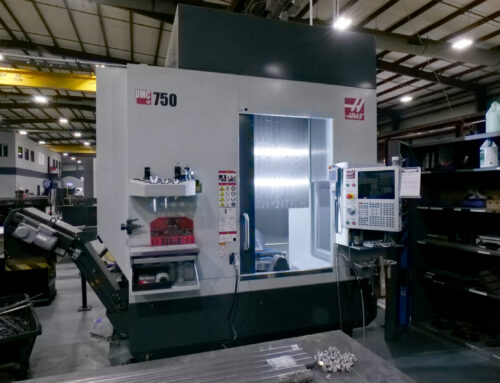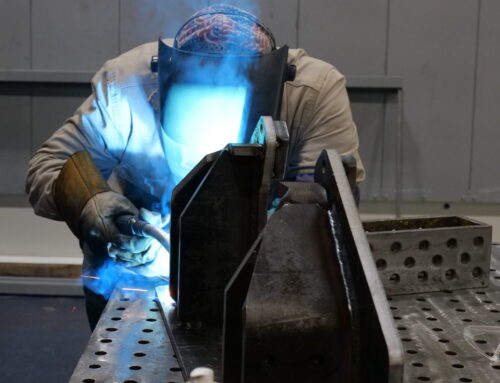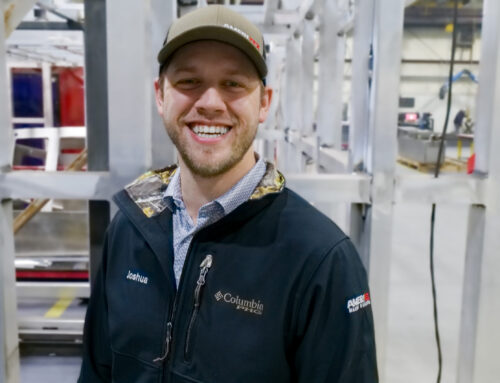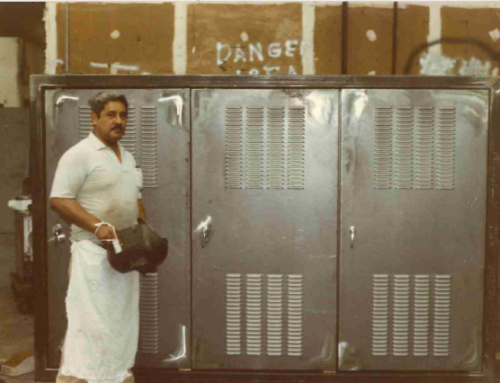Air Bending vs. Coining Sheet Metal: A Brief Explainer
Ameritex accurately bends materials like aluminum, stainless steel, carbon steel, copper, and even plastic from thin gauges up to 0.5” thick for a wide range of applications. While there are many precision sheet metal forming techniques, we’ve found air bending and coining to be the most practical for our customers’ needs.
Air Bending Sheet Metal
Air bending involves pressing sheet metal against a die to achieve a desired angle. However, the sheet metal never makes complete contact with the die.
 Advantages of air bending sheet metal:
Advantages of air bending sheet metal:
- Compatible with a wide variety of material types and thicknesses
- Less force required
- Less wear and tear on the tooling
- Allows for greater flexibility in adjusting the angle post-bending
Disadvantages of air bending sheet metal:
- Prone to springback, i.e., the material attempting to revert to its original shape post-bending
Air bending is Ameritex’s go-to method for precision sheet metal forming. It’s ideal for creating 90-degree bends commonly found in applications such as enclosures and brackets. Ameritex’s expert engineers and operators have the expertise and tools needed to account for springback and ensure that final parts meet all specifications.
Coining Sheet Metal
Whereas in air bending, the sheet metal never makes complete contact with the die, coining sheet metal involves pressing the sheet metal firmly against the die with significantly more tonnage and pressure.
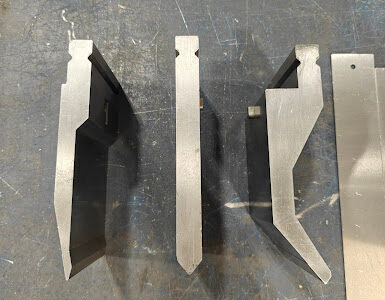 Advantages of coining sheet metal
Advantages of coining sheet metal
- Creates highly precise bends
- Springback is minimal
Disadvantages of coining sheet metal
- More wear and tear on the tooling
Ameritex typically leverages coining for high-precision, tight-tolerance parts, such as those used in automotive and aerospace applications.
Ameritex’s Sheet Metal Bending Machinery and Tooling
 We use several different press brakes in our sheet metal fabrication shop:
We use several different press brakes in our sheet metal fabrication shop:
- LVD ToolCell press brakes: standard press brakes used for general bending purposes
- Dyna-Press press brake: a small press brake best suited for intricate sheet metal parts
- Amada SPH-30C: a small press brake best suited for intricate and detailed bends
- Euromac Digibend 800 CNC press brake: a press brake specifically used for bending busbars and other copper sheet metal parts with extreme precision
Material and Size Considerations for Sheet Metal Bending
Ameritex’s highly skilled team can satisfy virtually any bending requirements. However, we may offer recommendations based on material type and size. For instance, hard aluminum is prone to cracking, so we may suggest using a soft aluminum like 5051 instead.
Depending on the size of your sheet metal part, we may need to get creative when bending is required. If our machinery can’t accommodate the size of your part, we can, for example, cut the part in half and weld the two pieces together after bending.
Need precision sheet metal forming for your next part or product? Request a quote today.

